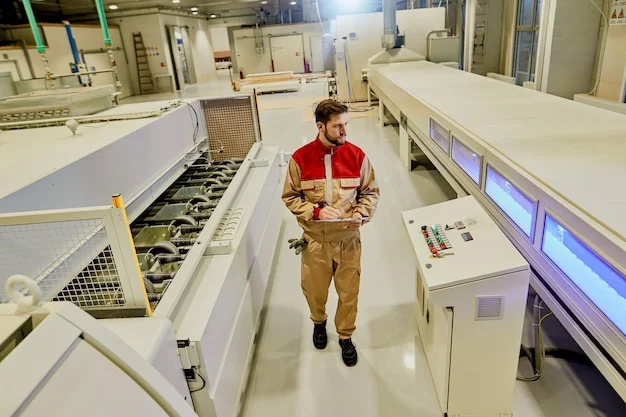In the modern world, indoor air quality is a key focus of residential and commercial property owners. As the importance of maintaining a clean and healthy indoor environment continues to grow, contractors are increasingly integrating advanced filtration systems into HVAC solutions. These systems help remove airborne particles and enhance a building’s overall comfort and safety. We will explore more on how contractors incorporate these systems into HVAC installations, their benefits, and today’s advanced filtration options.
The Role of Advanced Filtration in HVAC Systems
One of the primary goals of HVAC systems is to regulate temperature and maintain a comfortable living or working environment. However, these systems also play a significant role in improving indoor air quality. Air filtration removes dust, pollen, pet dander, mold spores, and bacteria or viruses. Contractors today recognize that integrating advanced filtration systems into HVAC setups is vital for promoting healthier living spaces. High-efficiency filters, such as HEPA filters, are commonly used to capture tiny particles and allergens that can trigger respiratory issues. These filters help prevent the buildup of harmful particles in the air, leading to a cleaner atmosphere. With an increasing awareness of the connection between air quality and health, contractors ensure that modern HVAC systems offer not just temperature control but cleaner air, thereby improving occupants’ well-being.
Understanding the Different Types of Advanced Filtration Systems
Contractors are presented with various filtration options when designing HVAC systems that ensure cleaner air in buildings. The HEPA (High-Efficiency Particulate Air) filter is one of the most commonly used filters. HEPA filters are known for their ability to trap particles as small as 0.3 microns, which include allergens like pollen and dust mites. This makes them highly effective for individuals suffering from allergies or asthma. However, some contractors opt for even more advanced systems beyond mechanical filtration. For instance, UV (ultraviolet) light systems are sometimes incorporated into HVAC solutions to target and eliminate microorganisms such as bacteria, mold, and viruses. Another common technology is the electrostatic air filter, which uses an electrical charge to attract and capture particles from the air. Contractors carefully choose between these options based on the specific needs of the building and its occupants. Each system is important in enhancing air quality while maintaining HVAC system performance.
The Integration Process of Advanced Filtration Systems
Incorporating advanced filtration systems into HVAC solutions requires a deep understanding of the system’s design and its impact on overall performance. When selecting and installing these systems, contractors must consider factors such as airflow, system compatibility, and filter capacity. One important aspect of the integration process is ensuring that the filtration system does not restrict airflow too much, which could compromise the heating and cooling efficiency of the HVAC system. Contractors also need to install filters that are the correct size and fit for the ducts and air handlers to avoid creating inefficiencies or air leaks. Often, this involves measuring the air handler’s dimensions, determining the appropriate filter size, and ensuring a proper seal around the filter. For more advanced systems, such as UV lights or electrostatic filters, contractors may need to install additional components like lights, wires, or grounding. By carefully considering these steps, contractors can integrate advanced filtration systems without disrupting the HVAC system’s ability to regulate temperature effectively.
The Benefits of Adding Filtration to HVAC Systems
Including advanced filtration systems in HVAC solutions provides multiple benefits for building owners and occupants. First and foremost, improved air quality enhances comfort by reducing allergens and other particles that can cause discomfort. People with respiratory conditions, such as asthma or chronic obstructive pulmonary disease (COPD), particularly benefit from the cleaner air provided by high-efficiency filtration. Additionally, cleaner air can reduce the likelihood of illness, as certain filtration technologies, like UV light systems, can neutralize harmful microorganisms that could otherwise cause infections. Another advantage is the potential for increased HVAC efficiency. High-quality filters prevent dust and dirt from accumulating on the internal components of the HVAC system, such as coils and blowers, leading to improved energy efficiency. This can result in longer equipment lifespans and lower energy bills, which are important for building owners. Contractors emphasize these long-term benefits to their clients, helping them understand the value of investing in quality filtration systems for their HVAC installation.
Integrating advanced filtration systems into HVAC solutions represents an important step in enhancing the air quality and efficiency of modern buildings. Contractors play a key role in ensuring that these systems are carefully selected and effectively installed to meet the unique needs of each space. With various filtration technologies, contractors can tailor HVAC solutions to provide healthier environments, reduced energy consumption, and longer-lasting systems. While there are costs associated with advanced filtration, the long-term benefits—health and efficiency—make these systems a wise investment for homeowners and business owners. Advanced filtration systems help create more comfortable, sustainable living and working environments by providing superior air quality and optimizing HVAC performance.







